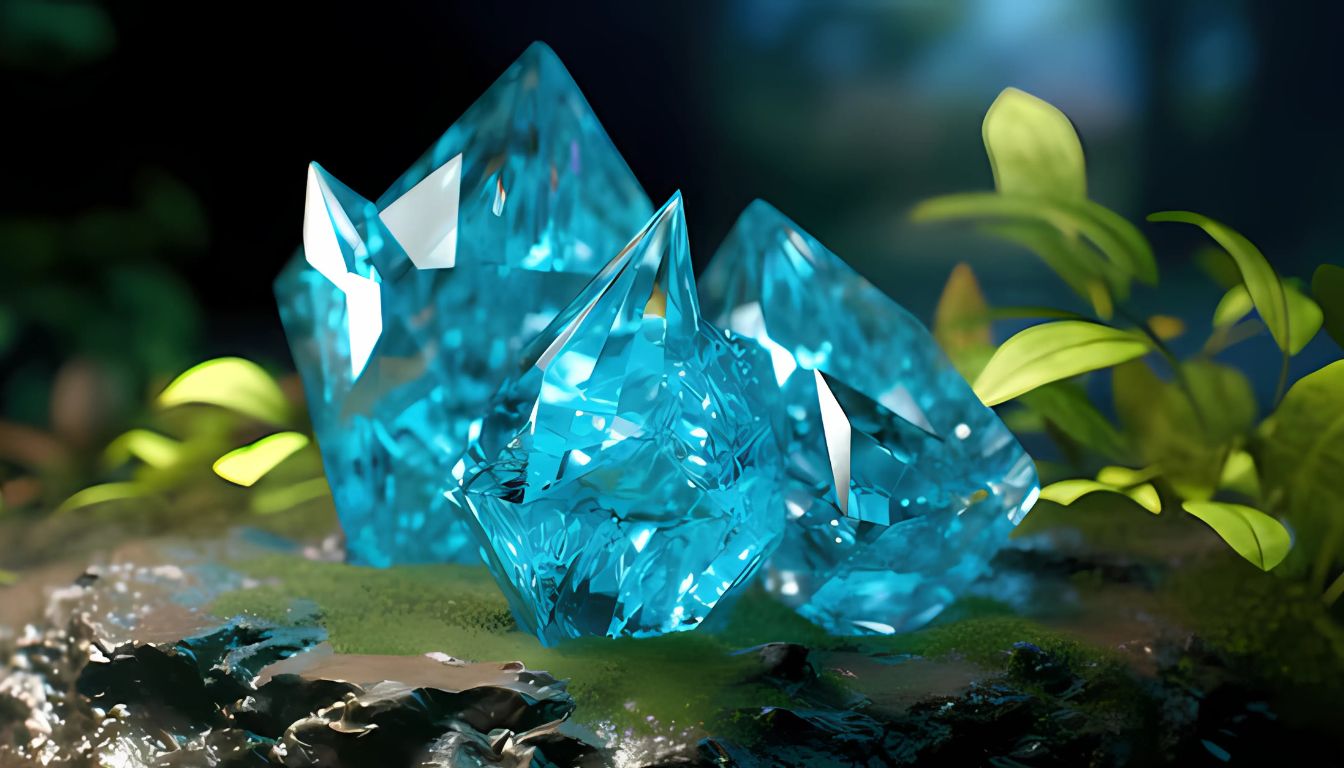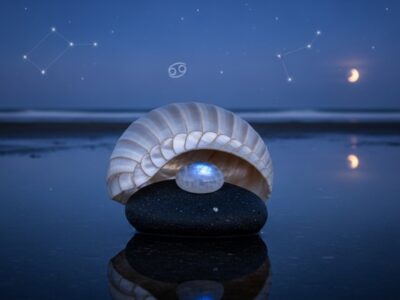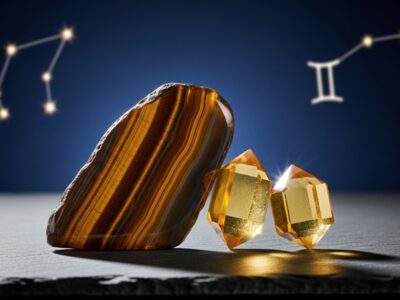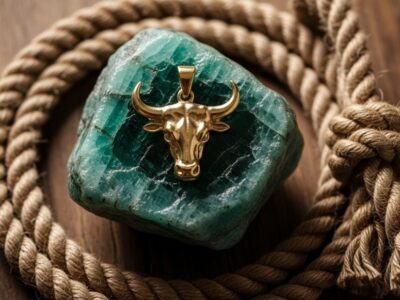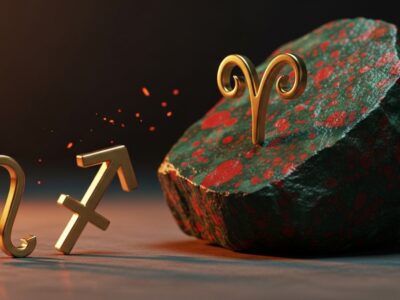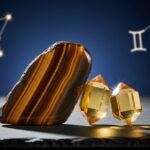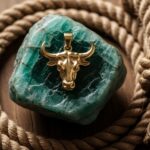Emerald is a kind of gemstone that need not be ornamented to look like a rich green hue because this tone is inherent and holds a natural beauty to connive gem lovers and collectors. However, there is a more interesting kind of this stone known as blue emerald which for some time now has been coming into limelight in the market of gemstones. This has many bristles that are coated in blue color and unlike its green neighbor which is quite common, this bristle attracts both eye-popping and question asking. However, blue emeralds with such features are incredibly rare and, at the same time, have a unique beauty and a history that has not been discussed yet.
Here, however, readers will get to learn more about the blue-colored emeralds – where they originate from and what they are made of. We will also discuss why these stones have quickly become favorites in modern jewelry and fashion today, which is the fascination that collectors and people interested in these marvelous gemstones have. We intend to help users understand the attributes and mystery behind blue emeralds and why there is a growing trend towards their usage today.
Table of Contents
What is a Blue Emerald?
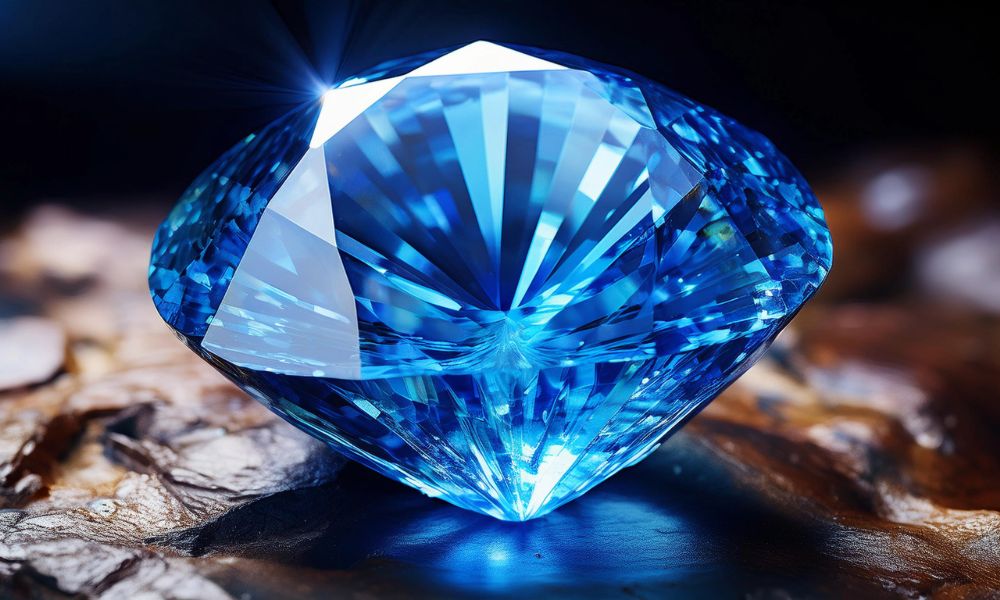
First, let’s define what blue-colored emeralds actually are as we are going to explore this topic. Blue emerald actually means a particular type of beryl mined which reflects a blue color and is very different from the green emeralds. From an earth science perspective, both blue and green emeralds come under the category of beryl – the mineral that can also occur in, red emerald, yellow emerald, pink emerald, and many other colors.
The best-known emerald is green beryl influenced by traces of chromium and vanadium while blue-colored emeralds are usually acquired from the presence of iron and possibly other traces of elements. That notwithstanding, it is familiar with other blue gems and is at times mistaken for sapphire or aquamarine. Such confusion can be attributed to the fact that beryl appears in a wide spectrum of colors Thus, Ruby is a name given to a reddish beryl.
Historical Significance
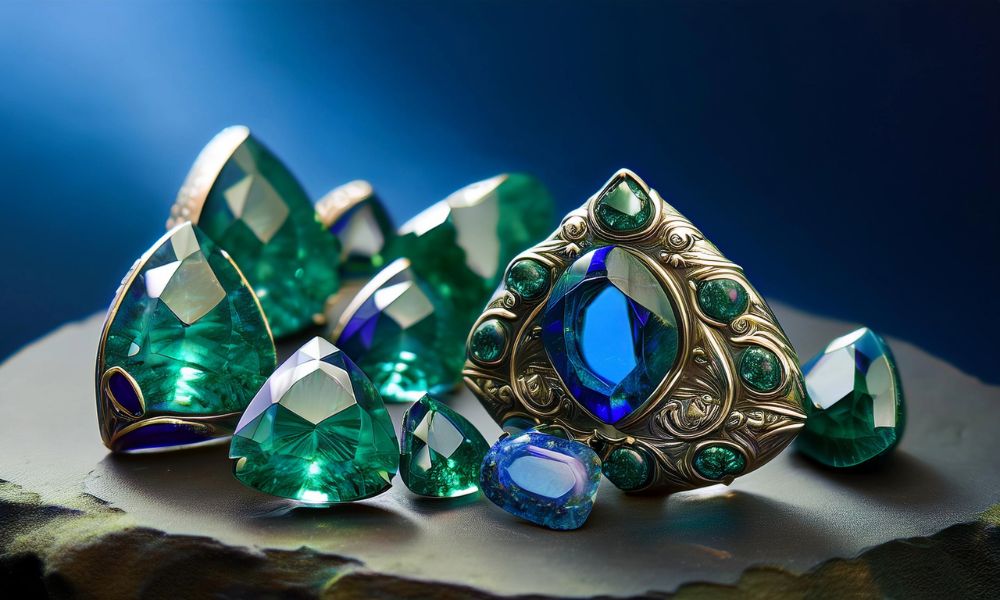
For several centuries emeralds have been one of the most popular gemstones in our culture people related them with kings, richness, and mystery. First, the Egyptians, and later the Incas, considered emerald to be one of the most beautiful and protective stones. While green emeralds are the protagonists of many a fable, blue gems are not lacking in stories; especially amongst the indigenous population of South America, where people believed in the mystic powers of the blue stones.
Recently, however, blue emeralds have emerged as interests of the modern era amongst gem lovers and jewel enthusiasts thereby giving a new twist to an age-old stone.
Characteristics of Blue Emerald
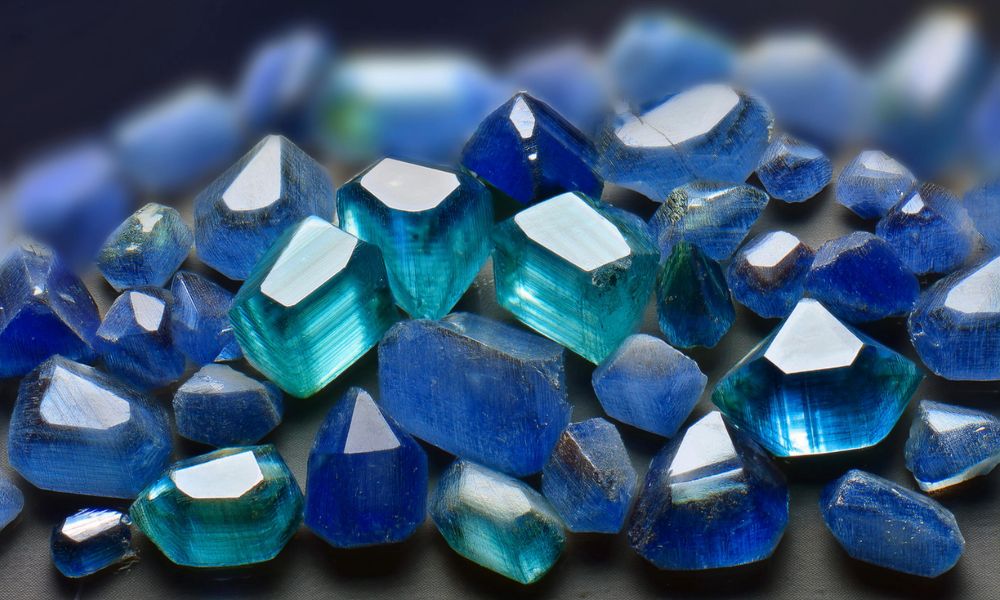
Color
The most important characteristic of a blue emerald is the fact that it is, well… blue. It can vary from a pale blue to a very dark blue depending on the minerals that were crystallizing alongside it and the chemical impurities that were incorporated at the time of its formation. The best quality of the next blue-colored emeralds is shown in the splendid depth of color that may compare to some sapphire gems.
Clarity and Cut
As with other gems, clarity is an important factor where blue emeralds are concerned as well. Now these inclusions are present in all forms of emerald but the best to be preferred are those that have little or no profound imperfections. The cut also determines the manner in which light is reflected from the stone, thus increasing the stone’s fire and depth. Examples include round, oval, and cushions that will give you the best color.
Rarity
Blue emeralds are less common in occurrence than green emeralds which makes them even more fascinating and valuable. Emeralds are usually found in South and Central American countries such as Colombia. Brazil and Zambia are among the world’s producers of emeralds but there are special deposits of blue-colored emeralds that are found in these countries and also in Madagascar.
Caring for Blue Emerald
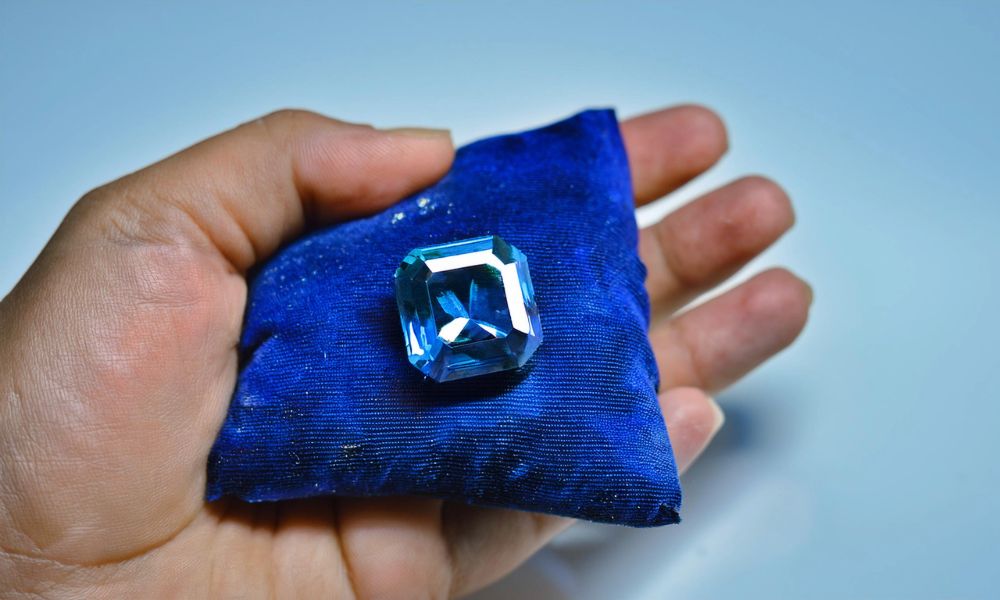
Blue emeralds require special care to be preserved in their beauty and not lose their properties. Here are some tips:
Cleaning: To wash your gemstone, you should use a mild soap and warm water to do it. Do not use chemicals or ultrasonic cleaners because they can lead to the destruction of the stone.
Storage: Blue emerald jewelry should be protected from getting in touch with other metals and jewels and should therefore be kept in a soft pocket or another area.
Avoiding Impact: Like all the beryls, the blue emeralds are not exceptionally hard, and can easily chip if they knock against hard surfaces.
Blue Emerald in Jewelry
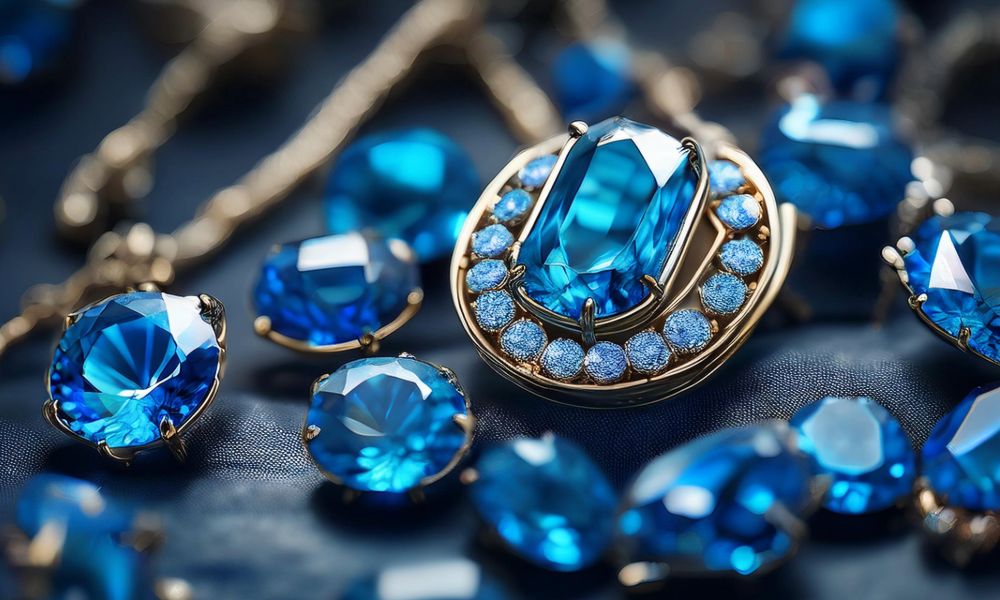
Blue emeralds in jewelry have become a noticeable trend in the recent past. Designers are gradually using these spectacular stones in jewelry, both traditional and modern styles. Alternatively, blue emeralds can be put into the middle of eye-popping rings or turned into attractive accents of earrings and necklaces.
Thanks to the novelty of their color, they can be combined with both gold and silver, which makes them perfect for any type of style. Celebrities and many tobacco influencers have started to start showing blue-colored emerald jewelry, which will help to boost traffic.
Conclusion
Blue emeralds are an exciting new departure from white or sea-green emeralds, as people who like to have something distinctive will find these fascinating. There are many kinds of gemstones that are claimed to have a long history and are now showing a rising trend in the jewelry industry these materials would certainly draw the attraction of many collectors and enthusiasts in the feature.
Hence, having a blue emerald can go well with individual piece selections or when searching for that perfect gift for the special someone. As this gemstone rises in popularity, it may just as well become the next hot item in fine jewelry.
FAQs about Blue Emerald
Q1. Is blue emerald real?
I couldn’t find anything referred to as blue emeralds, but the precious stones that one might come across are the blue diamond or the blue topaz. First off, by definition an emerald color ranges from a slight yellowish green to a bluish green. However, even in this, while the tone and saturation of the color are relevant considerations the dominant color needs to be green.
Q2. Is blue emerald rare?
The emeralds which are blue-green or pure green are often the hardest to come by and considered the finest quality emerald, and therefore most valuable.
Q3. What is blue emerald good for?
Blue emerald which is also known as blue tourmaline or indicolite is said to help with issues to do with fear as well as improving communication and stability of emotions. I found it is also supposed to help to minimize negative feelings and to provide guidance when it comes to interpersonal relationships.
Q4. Which color emerald is expensive?
The most expensive emerald tone is bluish-green with medium tone and with full saturation. I determine the terms hue, tone, and saturation because these are the three characteristics by which all colors of gems are assessed except black, white, and colorless gems.
Q5. What is a blue emerald called?
Aquamarine Other beryls follow emeralds, and the most famous among them are aquamarine stones. This brand name literally translates the Latin word for water ‘aqu’ and the sea ‘marine or marinus” It is a transparent fluid with a coloration ranging from a greenish blue to a bright sky blue. It is formally defined as being different from emeralds or green beryl in that it is most commonly blue.
Stay Tuned to Gems Tycoon for all gems-related articles.

